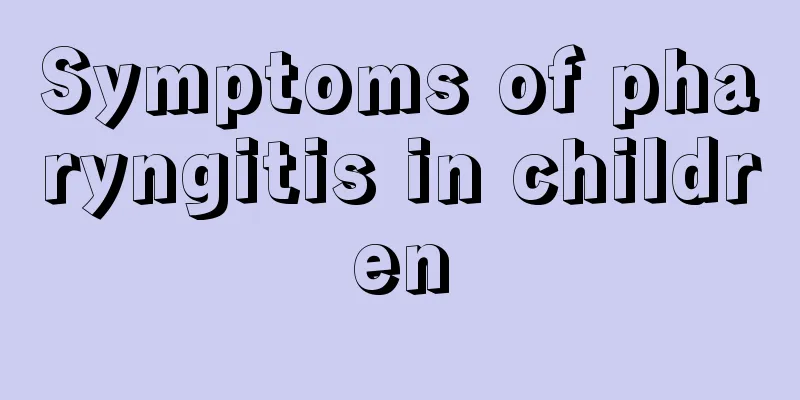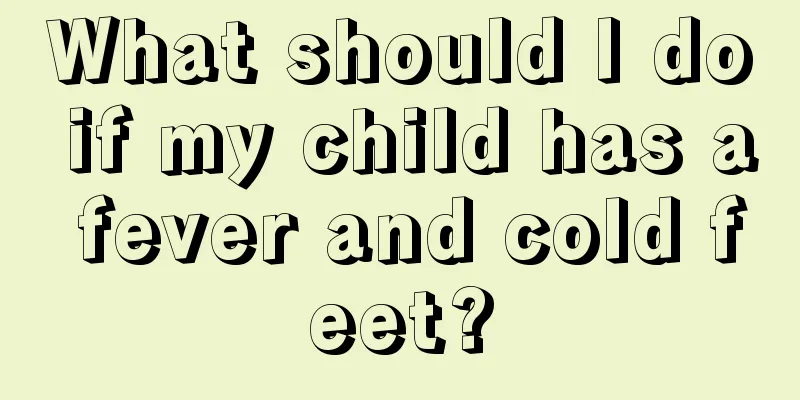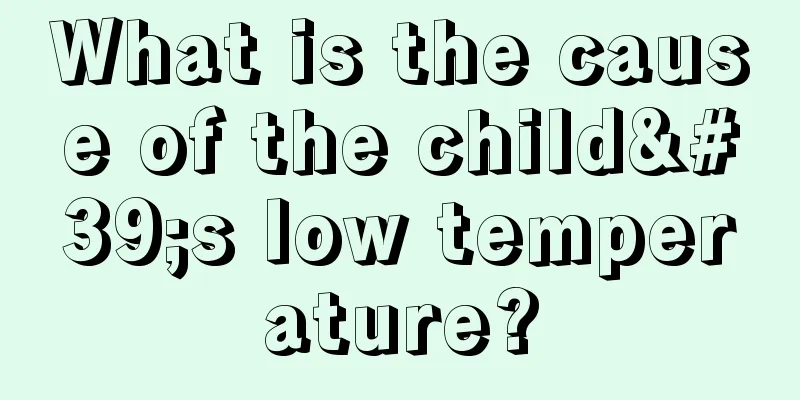Symptoms of pharyngitis in children

|
Pediatric pharyngitis is a common respiratory tract infection in children and is also an acute inflammation. If this disease occurs, it must be treated in time. Otherwise, once the condition worsens, it will not only have a greater impact on the child's physical health, but will also make the treatment of the disease more difficult. So, what are the symptoms of pharyngitis in children? The following is a detailed introduction to the clinical manifestations and diagnostic methods of pharyngitis.
Pharyngitis is an acute inflammation that occurs in the pharyngeal isthmus and is a special type of pharyngitis. The pharyngeal isthmus refers to a ring-shaped structure on the vertical plane of the pharynx. The upper part is the uvula and the free edge of the soft palate on both sides, the lower part is the root of the tongue, and the left and right sides are the palatoglossal arch and palatopharyngeal arch. These four structures together form a narrow annular part called the pharyngeal isthmus. Pharyngitis can be caused by bacteria, viruses and other pathogens, and manifests as sore throat, dry throat, foreign body sensation, herpes, ulcers, etc., which are similar to the symptoms of acute tonsillitis. There are several specific types of pharyngitis. ① Herpetic pharyngitis in children is mainly caused by infection with enterovirus Coxsackie group A virus. Characterized by acute onset of fever and sore throat, red halos on the mucosa and characteristic surrounding vesicular rash; ② Vincang pharyngitis, also known as ulcerative pharyngitis or ulcerative tonsillitis, is a subacute tonsillitis caused by infection with Fusobacterium and Vincang Borrelia, characterized by obvious localized inflammatory reaction and ulcer formation.
Herpetic pharyngitis is more common in children aged 3 to 10 years old, and is more common in summer and autumn. The disease may occur multiple times in the same patient, each time caused by a different type of virus. The incubation period is 3 to 10 days. It usually starts with a sudden high fever, which can reach a peak within 24 to 48 hours, rising to 39 to 41°C, accompanied by headache, throat discomfort, myalgia, etc. Infants and young children often vomit, refuse to eat, and even have febrile convulsions. However, most of them are mild cases, which are self-limited and improve in 1 to 2 weeks.
The diagnosis is generally not difficult based on symptoms, local examination and blood routine. If you want to identify the causative bacteria, a throat swab smear and culture can be performed. Attention should be paid to whether it is a prodromal symptom or concomitant symptom of an acute infectious disease (such as measles, scarlet fever, influenza, whooping cough, etc.), which is especially important in childhood. It should also be differentiated from pharyngitis caused by certain systemic diseases to avoid missing more serious systemic diseases such as leukemia, agranulocytosis, scarlet fever, diphtheria, etc. |
<<: How can mothers with blood type O prevent neonatal jaundice?
>>: What to do if your baby has mouth ulcers
Recommend
How to solve the problem of children coughing after waking up
How should we solve the problem of children cough...
How to grow 20 cm taller
When you see tall people around 1.7 or 1.8 meters...
Does a child grow taller when he has a fever?
It is generally believed that fever is a disease ...
What are the factors that cause precocious puberty?
As the food market is getting better and better, ...
What are the symptoms of teenage depression?
Nowadays, people are under great pressure in life...
What are some ways to cultivate children's sense of security?
Not all children are born as good as we imagine, ...
What should I do if my baby has a high fever and convulsions?
Babies who are not in good physical condition are...
How many times a day is normal for a baby to poop?
For young people who become parents for the first...
White spots on baby's body
Regarding the phenomenon of white spots on babies...
The reason why children's eyes are red and swollen with eye mucus
The health of children is a matter of great conce...
What is the order in which baby teeth grow?
The order of baby's teeth growth is from 6-7 ...
Treatment of nephrotic syndrome in children
Nephrotic syndrome is a disease that has a great ...
Do children need to have their cavities filled?
If a child has a cavity in his tooth, it must be ...
What are the symptoms of hemolysis in babies?
When a newborn baby shows symptoms of jaundice an...
The child has a fever
There are many reasons why children have fever al...









